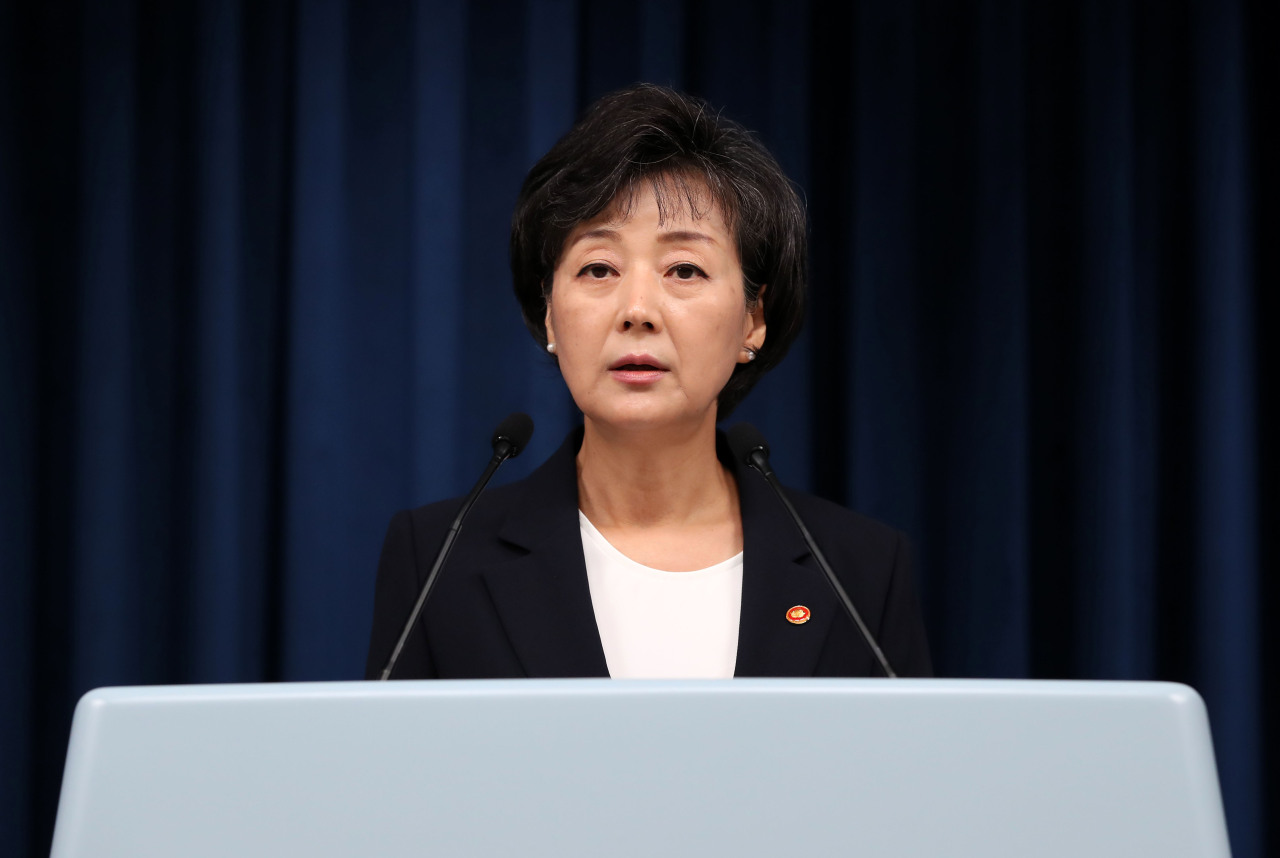Lowering elementary school entry age sparks debate
By Shim Woo-hyunPublished : July 31, 2022 - 15:50

A proposal to allow all children to enter elementary school one year earlier at 5 years old, starting as early as 2025, has been met with support and criticism from the education sector.
On Friday, Education Minister Park Soon-ae directly reported the reform of the school system, which would require amending the country’s education law, to President Yoon Suk-yeol at the presidential office in Yongsan-gu, central Seoul. Yoon ordered Park to push for the reform “immediately,” according to his spokesperson Kang In-sun.
The ministry said the lowering of the school starting age could go into effect in 2025 at the earliest if there is social consensus. If changed, it will be the first time the country amends its education law in 76 years since the law was created in 1949.
Park noted that the ministry will consult school officials, education experts and parents before finalizing its plan.
The government argues that it is significantly more effective to invest in early childhood education, the sooner the better.
The lowering of school entry age would also allow the country to bring the children from families in need into the public education system earlier and provide public support in advance.
Some experts said the school system change will be necessary in the future as it would allow them enter the job market sooner and help counter the decline in the country’s working-age population, caused by rapid aging and low birth rate.
Woo Tong-ki, president of Daegu Catholic University, said students should not be kept in the public school system for too long in a rapidly changing world.
Despite support from the government and some experts to change the public school system, many have also expressed concerns.
Korean Federation of Teachers’ Associations said the reform will require a massive budget to allow public schools to handle the additional influx of students in 2025.
The association noted that the students, who enter elementary school during the period when the new system is being introduced, will have to endure a more competitive environment when taking university entrance exams and entering the job market.
The Justice Party said children that will be affected by the change in the education system are bound to be at a disadvantage. The party said parents will still be reluctant to have their children enter elementary schools a year ahead and have them compete with other children who are older.
”The country already allows students to enter elementary school a year earlier. But the number of children who entered elementary schools a year ahead last year dropped to 537, from 9,707 in 2009,” an official from the Justice Party said.
A nongovernmental organization that has lobbied against private education also said the change in the public school system will increase competition among young students and could see parents start spending on private education earlier, and more than they would now.
An association of private kindergartens too criticized the government’s plan as they would be hit hard financially if children enter public school at an earlier age. Children aged 5 currently account for 40-50 percent of all children going to local kindergartens, according to the association.
An education policy research institution also hit out at the government’s plan, calling it “market and corporate-oriented.” The institution warned that changing the education system, without considering the impact on the stages of child development, could come with side effects.
The ministry said the new system, if finalized, will take place over a period of four years due to limitations in the supply of teachers and school space.
The 12-year school system, which includes six years in elementary school, three years each in middle school and high school, and four years in university -- will stay unchanged.
(ws@heraldcorp.com)



![[AtoZ into Korean mind] Humor in Korea: Navigating the line between what's funny and not](http://res.heraldm.com/phpwas/restmb_idxmake.php?idx=644&simg=/content/image/2024/04/22/20240422050642_0.jpg&u=)


![[Exclusive] Korean military set to ban iPhones over 'security' concerns](http://res.heraldm.com/phpwas/restmb_idxmake.php?idx=644&simg=/content/image/2024/04/23/20240423050599_0.jpg&u=20240423183955)
![[Herald Interview] Why Toss invited hackers to penetrate its system](http://res.heraldm.com/phpwas/restmb_idxmake.php?idx=644&simg=/content/image/2024/04/22/20240422050569_0.jpg&u=20240422150649)
![[Graphic News] 77% of young Koreans still financially dependent](http://res.heraldm.com/phpwas/restmb_idxmake.php?idx=644&simg=/content/image/2024/04/22/20240422050762_0.gif&u=)







![[Exclusive] Korean military to ban iPhones over security issues](http://res.heraldm.com/phpwas/restmb_idxmake.php?idx=652&simg=/content/image/2024/04/23/20240423050599_0.jpg&u=20240423183955)



![[Today’s K-pop] Ateez confirms US tour details](http://res.heraldm.com/phpwas/restmb_idxmake.php?idx=642&simg=/content/image/2024/04/23/20240423050700_0.jpg&u=)